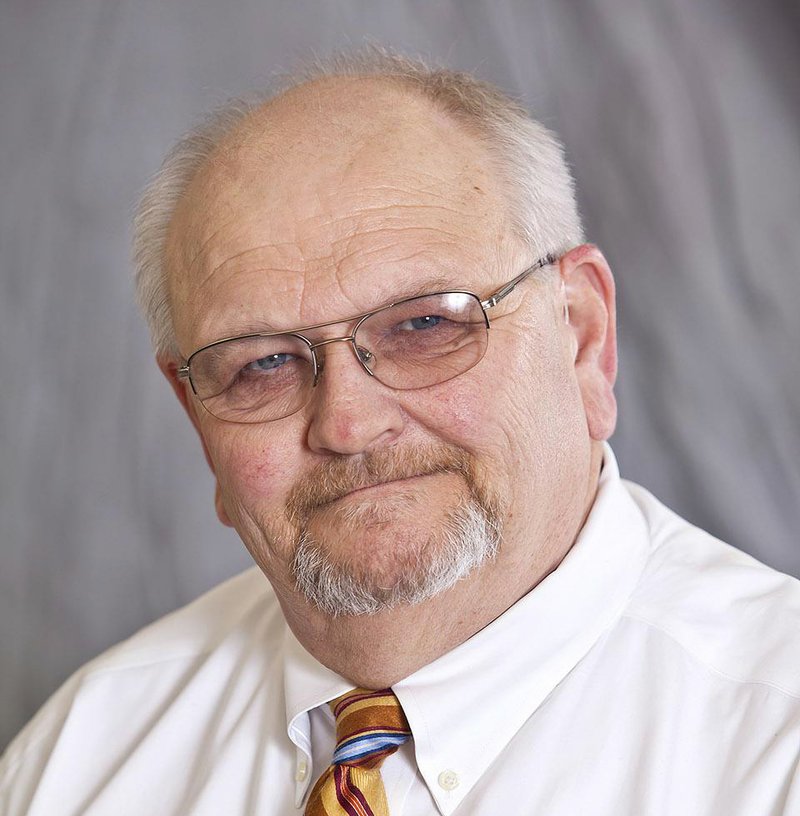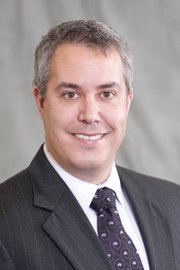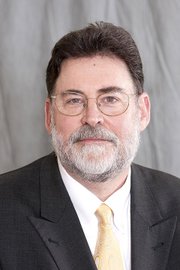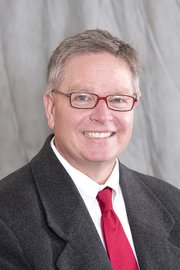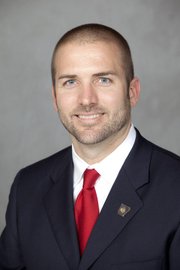CONWAY -- All five circuit judges in Faulkner County have signed an order recusing themselves from hearing a lawsuit against former colleague Michael Maggio and against an ex-state senator from Conway and a nursing-home owner who contributed to at least two of Maggio's recent campaigns.
Document set
Circuit Judge Michael Maggio
- Faulkner County Circuit Court filing
- Motion to dismiss complaint
- Brief for motion to dismiss complaint
- Judge David Laser appointment to Maggio case
- Gilbert Baker leave of absence request
- Michael Maggio plea agreement
- Michael Maggio criminal information
- Martha Bull Estate v. Michael Maggio
- Supreme Court ruling removing Michael Maggio from bench
- Circuit Judge Michael Maggio comments on JDDC sanction
- Judicial Discipline and Disability Commission report on Judge Michael Maggio
- Judicial Discipline and Disability Commission report on Circuit Judge Michael Maggio
- Ethics Commission issues final action letter to Michael Maggio
- Ethics Commission's offer of settlement to Michael Maggio
- Public letter of caution to Michael Maggio
- Ethics Commission letter to Thomas Buchanan
- UCA internal audit on Gilbert Baker
- Response to nursing home lawsuit
- Lawsuit against Salem Place Nursing and Rehabilitation Center, et al.
- Letter from Ancil Lee III to Chris Stewart
- Letter to the Arkansas Judicial Discipline & Disability Commission in Michael Maggio case
- Michael Morton contribution letters
- Gilbert Baker job description and salary
- Ethics commission letter to complainant in Maggio case
- Arkansas Supreme Court reassigns Judge Maggio's cases
- Ethics complaint in Maggio PAC case
- Michael Maggio formally withdraws candidacy
The brief order, filed in circuit court Tuesday and placed online Wednesday, says the five "have found it necessary due to conflicts of interest to recuse from any further action" involving the lawsuit filed by two daughters of Martha Bull, a Perryville woman who died in Michael Morton's Greenbrier nursing home in 2008.
Maggio pleaded guilty last week to felony bribery. The plea agreement he signed says he "corruptly" accepted and agreed to accept campaign contributions in exchange "at least in part" for reducing a jury's multimillion-dollar lawsuit judgment that found negligence in Bull's death.
Maggio, 53, is to be sentenced July 24 before Judge Brian Miller in U.S. District Court in Little Rock.
The maximum sentence Maggio could face is 10 years in prison, three years of supervised release and a $250,000 fine. Plea agreements, however, often result in less-severe sentences in exchange for a defendant's cooperation and information, and Miller has sealed a "plea agreement addendum" in Maggio's case.
Arkansas Supreme Court Chief Justice Jim Hannah will appoint a special judge to hear the Bull family's latest lawsuit after he receives a request from the Faulkner County judges, said Stephanie Harris, the high court's spokesman.
Hannah could choose a retired judge or a current one from another circuit in the state, Harris said.
Also Wednesday, Thomas Buchanan, the attorney representing Bull's daughters, filed a circuit-court document challenging Maggio's argument that judicial immunity prohibits Maggio from being sued for reducing the Faulkner County jury's $5.2 million judgment against the Greenbrier nursing home to $1 million in 2013.
Defendants in the pending lawsuit are Maggio, Morton and former state Sen. Gilbert Baker, a Conway Republican. Neither Morton nor Baker has been charged with a crime.
Three of the recusing judges -- Charles Clawson Jr., David Clark and H.G. Foster -- served as judges along with Maggio in the 20th Judicial Circuit before the Arkansas Supreme Court ordered Maggio removed from the bench in September.
At least two of the judges -- Clark and Troy Braswell -- received campaign contributions from Morton or his businesses during their 2014 campaigns for the bench, secretary of state records show.
Judge Mike Murphy was Conway's city attorney while Maggio was a judge. Braswell was also the circuit's chief deputy prosecutor until January and likely would have had some cases before Maggio in the past.
All five live in Faulkner County, as does Maggio. The 20th Circuit also includes Van Buren and Searcy counties.
Ken Gallant, a professor at the University of Arkansas at Little Rock's William H. Bowen School of Law, said Wednesday that the five judges were correct to recuse.
"It's pretty clear that in a legal community like Faulkner County that it's best to have an outside judge for something that so closely concerns a judge from this county," Gallant said. "I would certainly think it's appropriate to have an outsider be the judge in a matter like this."
Gallant noted that state rules vary on whether judges who recently accepted campaign contributions from a defendant should step aside. Still, Gallant said, "in a case like this where contributions are part of the issue, [judges] might think even more about" recusing.
For months, the FBI has been investigating thousands of dollars in contributions Morton made in checks dated July 8, 2013, to eight political action committees. Seven of the PACs later gave money to Maggio's campaign for the Arkansas Court of Appeals. Maggio ultimately withdrew from the race.
Morton has said he mailed the contributions to Baker's home and that they were intended for Maggio's campaign.
Also on July 8, 2013, Maggio heard a plea from Morton's Greenbrier Nursing and Rehabilitation Center to reject or to lower the jury's judgment against it. On July 10, Maggio cut the judgment to $1 million.
Baker has said he helped raise money for Maggio's campaign but that the PACs were not created solely for Maggio.
Maggio's attorney, Lauren Hamilton, recently argued in a circuit-court document that judicial immunity prohibits the lawsuit against Maggio over his handling of the Bull case.
In a filing Wednesday, Buchanan -- who represents Rosey Perkins and Rhonda Coppak in their mother's death -- countered that Maggio's actions "were independent of his role as a sitting judge" and that judicial immunity in civil lawsuits does not apply in this case.
"To be sure, offenses like corruption and bribery are not judicial acts within a judge's jurisdiction and, consequently, do not fall within the purview of judicial immunity," Buchanan wrote.
Buchanan also argued that the lawsuit's chief allegations do not stem from Maggio's reduction of the judgment but from the extent to which that decision "was guided by his clandestine agreement with Morton and Baker, the illegal solicitation and acceptance of campaign contributions."
Further, "the solicitation and acceptance of campaign contributions is not conduct normally performed by a judge," Buchanan wrote. "These acts also are not performed in furtherance of any judicial function."
In the federal case, Miller has ruled that Maggio must surrender his passport to the federal probation office. Maggio, who is free on his own recognizance, had no objections, records show.
Gallant said it's "fairly common" for criminal defendants in federal courts to have to surrender their passports. "It's one thing that makes it harder for someone to leave the jurisdiction of the court," he said.
Miller also removed provisions of Maggio's release that could have resulted in Maggio having to submit to drug counseling and to participate in substance-abuse therapy and counseling.
Maggio remained a licensed attorney as of Wednesday, Harris said.
A Section on 01/15/2015
